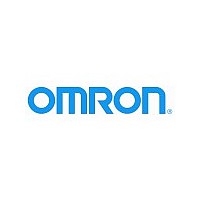WS02-SGWC1 Omron, WS02-SGWC1 Datasheet - Page 4

WS02-SGWC1
Manufacturer Part Number
WS02-SGWC1
Description
SYSMAC Gateway (FINS GW) 1 Lic
Manufacturer
Omron
Datasheet
1.WS02-SGWC1.pdf
(5 pages)
Specifications of WS02-SGWC1
Lead Free Status / Rohs Status
Lead free / RoHS Compliant
CX-Compolet
CX-Compolet
● Read and write I/O memory in the PLC, change the
● Supports Microsoft Visual Studio.NET 2008.
● Can be used from Visual Basic.NET and
● For the CJ2 with EtherNet/IP functionality, I/O
● Array variable access is possible.
Simply Paste to a Form and Enter a Line of Code.
.NET Control Objects
CX-Compolet is a package of software components that make it easy to program reading and writing OMRON PLC data.
■ Procedure
6
Easily Create Programming to Read and Write PLC Data using VB or VC#.
1
Problem
Customers who are
developing VB/VC# programs
including communications
with PLCs
operating mode, read error logs, and perform other
operations.
Visual C#.NET.
memory in the PLC can be accessed by using
tag names rather than addresses.
After installation, the
OMRON SYSMAC CJ2
Icon will be displayed in
the controls.
Situation
Creating and Modifying VB/VC# Communications Programming Is Too Much Work
Having to change communications
processing, e.g., for Ethernet and serial
communications, is too much work.
Handling PLC address changes is
particularly time consuming.
For a block of data of the same data
type, it is too much work to have to
specify the addresses one by one rather
than being able to view them as one
group and access that data as an
element.
Having to program communications
frame assembly, reception response
interpretation, and monitoring is too
much work.
2
Position the SYSMAC
CJ2 Icon in the form.
NEW
NEW
∗ActiveX Control Objects are also included.
NEW
3
4
Set the remote PLC in
the properties.
Arrange the command buttons,
text boxes, etc., in the form.
User-created Applications
SYSMAC Gateway
VB.NET or VC#.NET
SYSMAC PLC
Note: When combined with the CJ2 with EtherNet/IP functionality.
Solution with CX-Compolet
Processing such as communications frame assembly is prepared
in advance!
Data is accessed by using tag names rather than by using
addresses, so programming does not have to be changed even if
PLC addresses are changed.
Array variables are supported, so data can be easily specified by
simply changing the element subscript with the same tag name.
Example:
Reading I/O Memory
.NET Controls
D0 1234
Text1=SYSMAC CJ2.ReadVariable “PV”)
5
In the Command Button Code
Dialog Box, enter the PLC tag
name on one line. (The tag
name below is “PV.”)
CX-Compolet
Simply paste to the form and
specify the tags (addresses).
Example
Press the button to read the
value (D0 in this example).
■ Software Configuration
■ Application Example
Easily Program Device Alarm Monitoring.
● Using the control components provided by CX-Compolet frees the application designers from having to program the communications portions of the
● Data for device alarms and other data are sent to the applications using non-solicited EtherNet/IP communications events.
● Standardization is made easy by specifying data using tag names (such as “Alarm A” and “Alarm B”) in the applications.
Main CX-Compolet Functions
Interface
Properties
Methods
Events
application.
SYSMAC Gateway
CX-Compolet
VB.NET/VC#.NET
SYSMAC PLC
Function
Communications with SYSMAC PLCs Specifies the PLC to communicate with, and reads network information.
Reading and writing I/O memory
Operating status
Area information
Error information
Other SYSMAC PLC information
Reading and writing I/O memory
Creating I/O tables
Force-setting, force-resetting and clearing bits
Communications with SYSMAC PLCs Specifies the PLC to communicate with.
FINS service execution
Scheduled events
Read and writes data in memory areas, such as the DM Area or CIO
Area. For example, DM word 100 can be specified by using “D100”
or by using a tag name.
Reads and writes memory, such as consecutive words in the DM
Area or CIO Area. For example, it is possible to specify the data type
(integer, single, etc.) or change the data type (BCD, BIN, SBIN).
Description
Reads and changes the operating mode.
Reads information such as the program area size and number of DM Area words.
Reads the value and error message when an error occurs.
Reads the model and reads and changes the clock.
Creates the I/O tables for the present configuration.
Force-sets, force-resets, and clears bits.
Sends FINS commands and gets the responses that are received.
Events occur at regular intervals.
Alarm A
■ System Configuration Examples
EtherNet/IP
Note: The above configurations are only examples. Communications are also possible with PLCs
CX-Compolet
CX-Compolet can access the PLCs in all of the following configurations.
other than those shown here. For details, refer to page 8.
USB
Commercially
available USB cable
USB
Ethernet
CX-Compolet
CX-Compolet
CJ2/CP1
CJ2
Data links
EtherNet/IP
EtherNet/IP
CJ2/
CJ1/
CS1
CJ2/
CJ1/
CS1
CJ2/
CJ1/
CS1
RS-232C
Special Cable
CX-Compolet
CJ2/CJ1/CS1
Note: Only the components compatible with
Environment for CX-Compolet
Item
Languages
Supported OS
Supported
execution
environment
Development
environment
CX-Compolet
Controller Link
Support Board
SYSMAC Compolet version 2003 are
supported. A development environment of
.NET 2003 or higher is required for CIP
communications.
RS-232C
CX-Compolet
CJ2/
CJ1/
CS1
Alarm B
Controller Link
Microsoft Visual Studio
.NET (See note.), .NET
2003, .NET 2005, or
.NET2008
Development languages:
Visual Basic.NET and Visual
C#.NET
Visual Basic version 5 or 6
(Only the functions
compatible with Compolet
V2 can be used.)
Description
English or Japanese
Windows 2000, XP, or Vista
and 2003 Server
. N E T F r a m e w o r k
( 1 . 1 , 2 . 0 , 3 . 0 , o r 3 . 5 )
CJ2/
CJ1/
CS1
Data links
Controller Link
CX-Compolet
CJ2/
CJ1/
CS1
CJ2/
CJ1/
CS1
7







